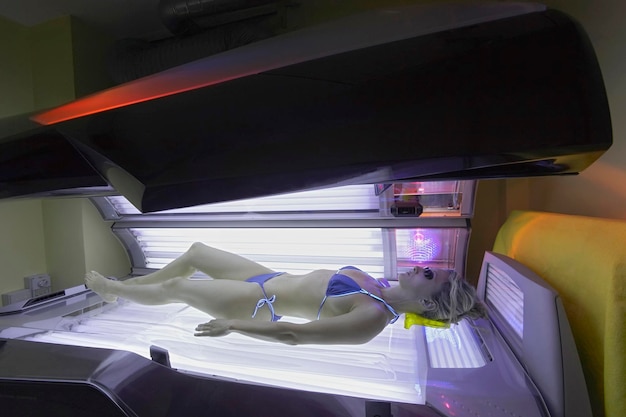The Morning After
Blimey, what a night! As the sun peeked through the curtains, I found myself in an unfamiliar bed, my head pounding and memories of the previous evening’s office party flooding back. Slowly, I turned to see my colleague, Sarah, still fast asleep beside me. The realisation hit me like a tonne of bricks: we’d crossed a line that could potentially change everything.
As I carefully slipped out of bed, trying not to wake her, I began to assess the situation. We were both single, so at least there wasn’t the added complication of infidelity. However, the fact remained that we worked together, and this could have serious repercussions for our professional lives.
My mind raced as I considered the potential consequences. Would this affect our working relationship? How would our teammates react if they found out? And most importantly, what did this mean for our careers at Kimon?
Navigating Workplace Dynamics
As the founder of Kimon, I’ve always been acutely aware of the importance of maintaining professional boundaries. Our company policies on workplace relationships are clear: while not strictly forbidden, they are discouraged due to the potential complications they can bring.
I couldn’t help but worry about how this incident might impact our team dynamics. Sarah and I had always had a good working relationship, but would this change things? Would our colleagues notice a difference in our behaviour towards each other?
The potential impact on the wider team was also a concern. As a leader, I’ve always strived to create an environment of trust and respect. Would this incident undermine that?
Approaching the Conversation
As I made my way home, I wrestled with whether to discuss the incident with Sarah. On one hand, ignoring it seemed like the easiest option. On the other, I knew that addressing it head-on was probably the most responsible course of action.
If we were to talk about it, I needed to choose an appropriate time and place. The office was out of the question – too many prying eyes and ears. Perhaps a quiet café after work would be best.
My goal would be to establish a mutual understanding and set clear expectations moving forward. We needed to be on the same page about how to handle this situation professionally.
A Moment of Self-Reflection
As I showered and prepared for the day ahead, I took some time for personal reflection. What had led to this encounter? Was it purely the result of too much alcohol, or were there underlying feelings that needed to be addressed?
I also had to evaluate my current relationship status. While I was single, I hadn’t been actively looking for a relationship. Did this change things?
The potential impact on my personal life was another factor to consider. How would this affect my future romantic prospects? Would it change how I viewed workplace interactions going forward?
Maintaining Professionalism
As I arrived at the office, I was determined to maintain a professional demeanour. It was crucial to address any awkwardness or tension head-on, but without drawing attention to the situation.
I made a conscious effort to focus on my work responsibilities, throwing myself into the day’s tasks with renewed vigour. This not only helped to distract me from the situation but also ensured that my work performance didn’t suffer as a result.
Addressing Emotional Well-being
Throughout the day, I found myself grappling with feelings of guilt and regret. While the encounter had been consensual, I couldn’t shake the feeling that I had somehow let myself down by blurring the lines between my personal and professional life.
The stress and anxiety of the situation were palpable. I knew I needed to find healthy ways to manage these emotions, whether through exercise, meditation, or talking to a trusted friend.
I also considered the possibility of seeking support from a professional counsellor. As a leader, I’ve always encouraged my team to prioritise their mental health, and I knew it was important to practice what I preach.
Legal and Ethical Considerations
As the day progressed, I found myself reviewing our company’s workplace harassment policies. While our encounter had been consensual, I was acutely aware of the power dynamics at play. As the founder of the company, I held a position of authority over Sarah, which added an extra layer of complexity to the situation.
I made a mental note to review our policies and consider whether they needed to be updated or clarified in light of this experience. It was crucial to ensure that all employees felt protected and respected in the workplace.
Considering Long-term Implications
As I looked towards the future, I couldn’t help but wonder about the long-term implications of this incident. How would it affect my career prospects within the company? While I was the founder, I still had a board of directors to answer to, and I knew that personal indiscretions could potentially impact their trust in my leadership.
Reputation management was another concern. In the age of social media and instant communication, news of workplace indiscretions can spread like wildfire. I knew I needed to be proactive in managing any potential fallout.
Future interactions with Sarah were also a consideration. How would we navigate team meetings, client presentations, and other work-related events? It was crucial to find a way to maintain a professional relationship without any lingering awkwardness.
Lessons Learned
As I reflected on the experience, I realised there were valuable lessons to be learned. The importance of setting clear personal boundaries, especially in work-related social situations, was more apparent than ever.
I also recognised the need to develop better strategies for future work events. Perhaps limiting alcohol consumption or ensuring I always had a trusted colleague to keep an eye on me would be wise precautions.
Ultimately, this experience highlighted the delicate balance between personal and professional life. As a leader, I needed to set an example for my team and demonstrate that it’s possible to be friendly and sociable with colleagues without crossing important boundaries.
Moving Forward
As the day drew to a close, I found myself mentally summarising the key points I needed to address. First and foremost was the need to have an open and honest conversation with Sarah. We needed to establish clear expectations for our future interactions and ensure that we were both comfortable with how to proceed.
I also resolved to review and potentially update our company policies regarding workplace relationships. It was important to ensure that we had clear guidelines in place to protect all employees and maintain a professional work environment.
Finally, I made a commitment to myself to use this experience as a catalyst for personal growth. By learning from this situation and making more responsible decisions in the future, I could become a better leader and set a positive example for my team.
As I left the office that evening, I felt a sense of determination. While the situation was far from ideal, I was confident that by approaching it with honesty, professionalism, and a commitment to learning, we could navigate these choppy waters and emerge stronger on the other side.


